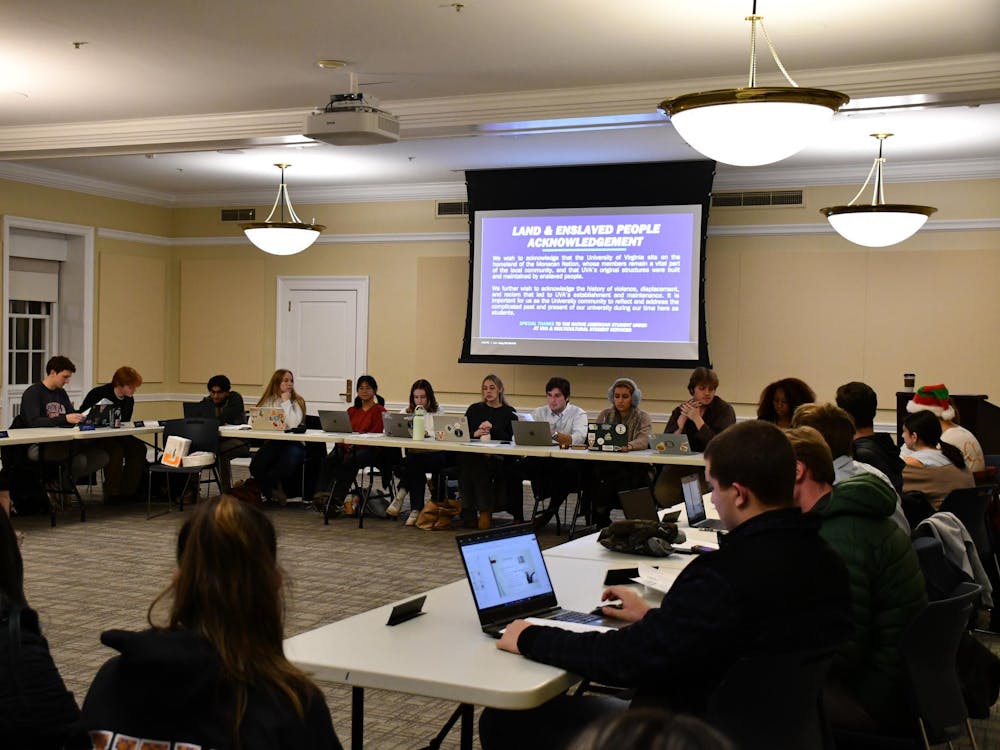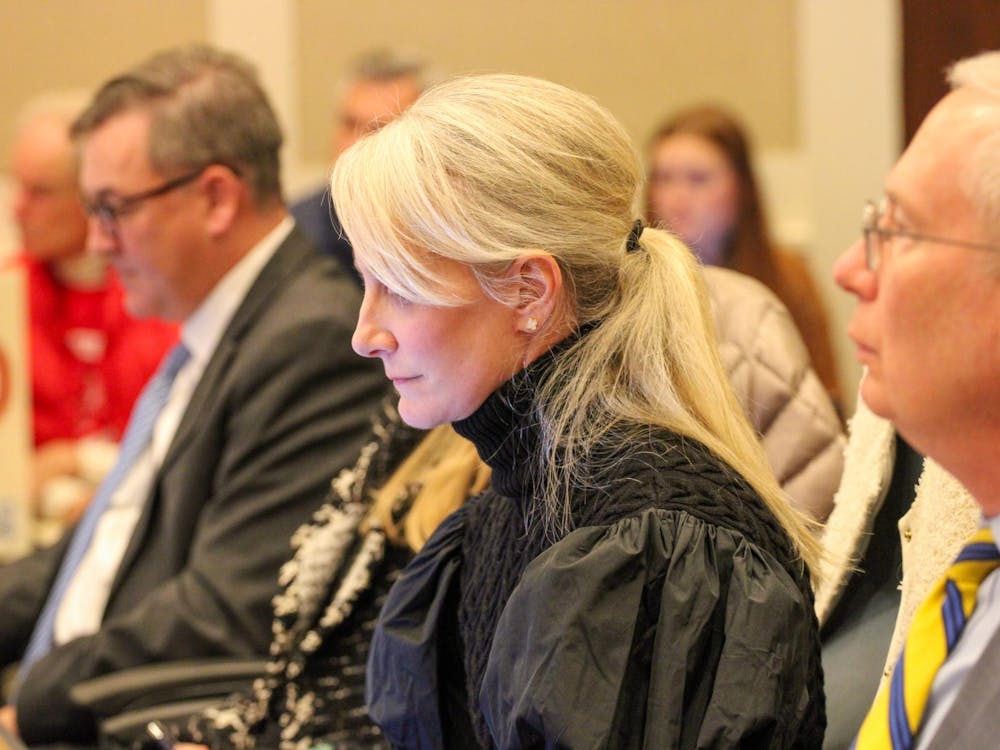Charlottesville Police and University officials are investigating a Sept. 16 allegation of illegal hazing of second-year Engineering student John W. Cox by the Phi Delta Theta fraternity.
Police said Cox was instructed to drink a fifth of rum in 30 minutes and had been able to sleep only nine hours during the previous five days of his "hell week."
Cox "consumed a lot of alcohol as part of an illegal hazing activity," Charlottesville Police Lt. D.L. Pleasants said.
But Cox, now a Phi Delta Theta brother, said the fraternity did not force him to drink alcohol while pledging.
"The alcohol is not part of any hazing activity," Cox said. "That was my own doing."
According to Pleasants, police found Cox unconscious in a bathtub at the house of a female friend, where he had been dropped off by one of the fraternity brothers.
When police arrived after responding to his friend's 911 call, Cox "was trembling uncontrollably and his friend had put wet towels on his head to prevent shock," Pleasants said.
Cox was transported from his friend's 2000 block Jefferson Park Avenue home to University Hospital at 11:45 p.m., where he was treated for alcohol poisoning.
According to the police report, after Cox regained consciousness at the hospital, he told police that he remembered going to the Phi Delta Theta fraternity house but nothing else during the evening.
Police said they were investigating the incident but had not yet filed any criminal charges.
Dean of Students Penny Rue said the University was aware of the allegations and had been in contact with the Charlottesville Police.
"Any allegation of hazing is something we take very seriously and take under investigation," Rue said.
Asst. Dean of Students Aaron Laushway said both Virginia Commonwealth statutes and University Standards of Conduct prohibit hazing.
"Hazing is strictly prohibited by the standards of conduct of the Black Fraternity Council, the Inter-Fraternity Council, the Inter-Sorority Council and the Fraternity-Sorority Council," Laushway said.
IFC President Wes Kaupinen shared the Office of the Dean of Students' concern over hazing allegations.
"Hazing is a very serious allegation and a violation of IFC Standards of Conduct and would be treated with the utmost severity," Kaupinen said.
"The entire membership of a chapter are educated annually on the rules and regulations regarding hazing, what hazing entails and implications of hazing behavior," Laushway said.
Phi Delta Theta President Adam Abatzis could not be reached for comment. Brendan Dignan, Phi Delta Theta brother and third-year College student, declined to comment on the incident. Phi Delta Theta National Chapter officials did not return phone calls.
Under Virginia law, hazing is a Class I misdemeanor unless the victim's injury is found to constitute a felony.
Any student found guilty by the University Judiciary Committee of hazing as defined by the state shall be expelled in accordance with state statutes, Committee Chairman Brian Hudak said.






